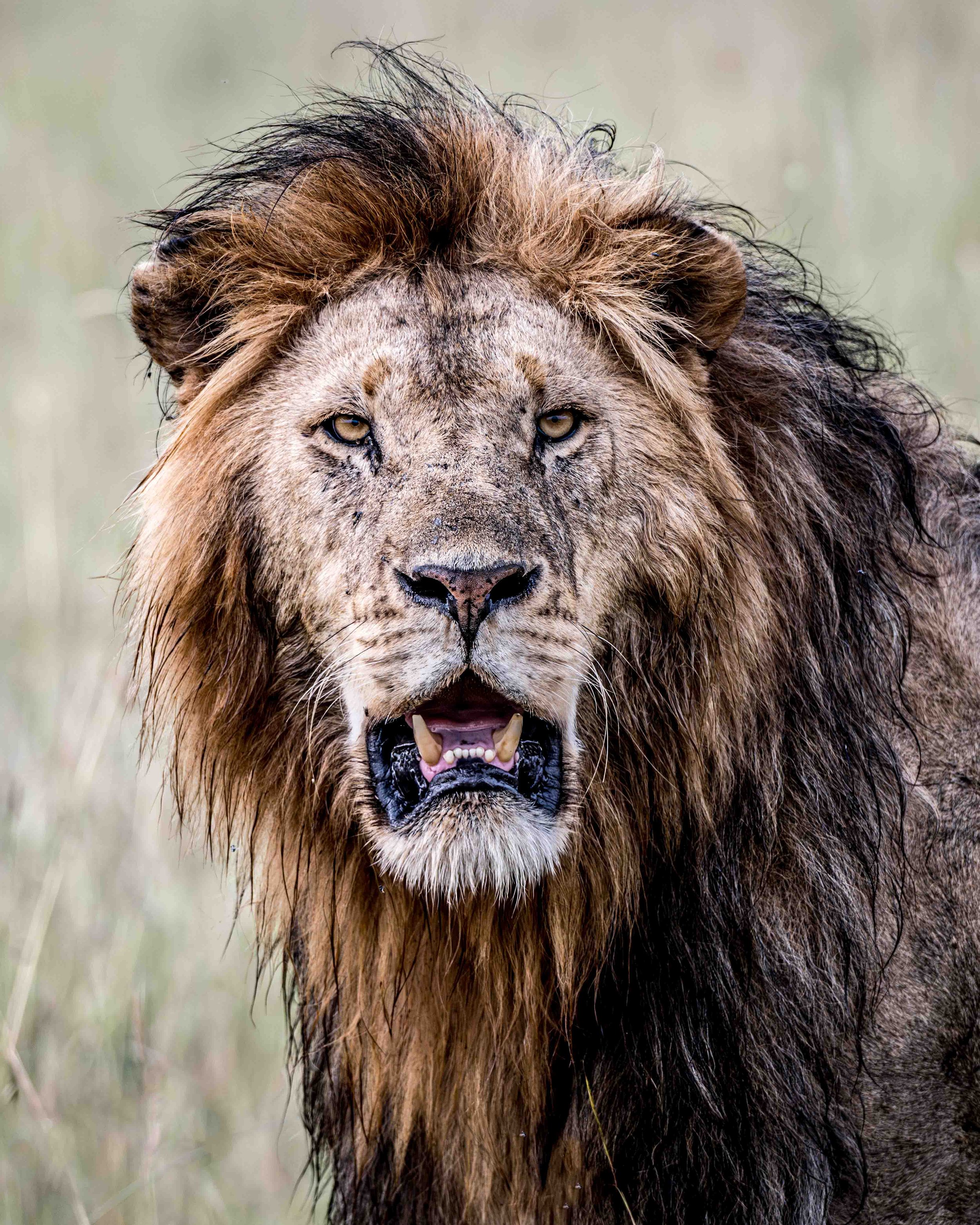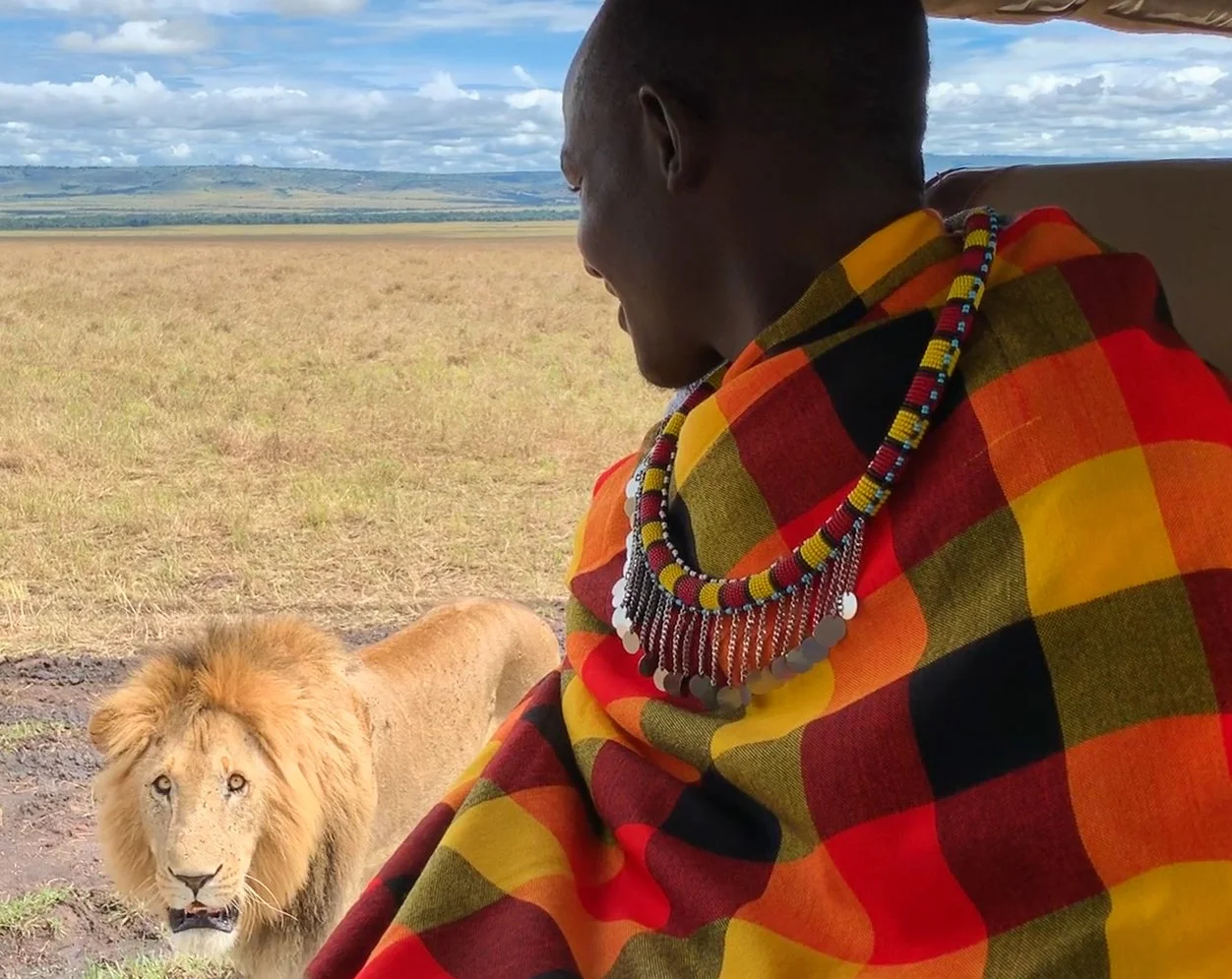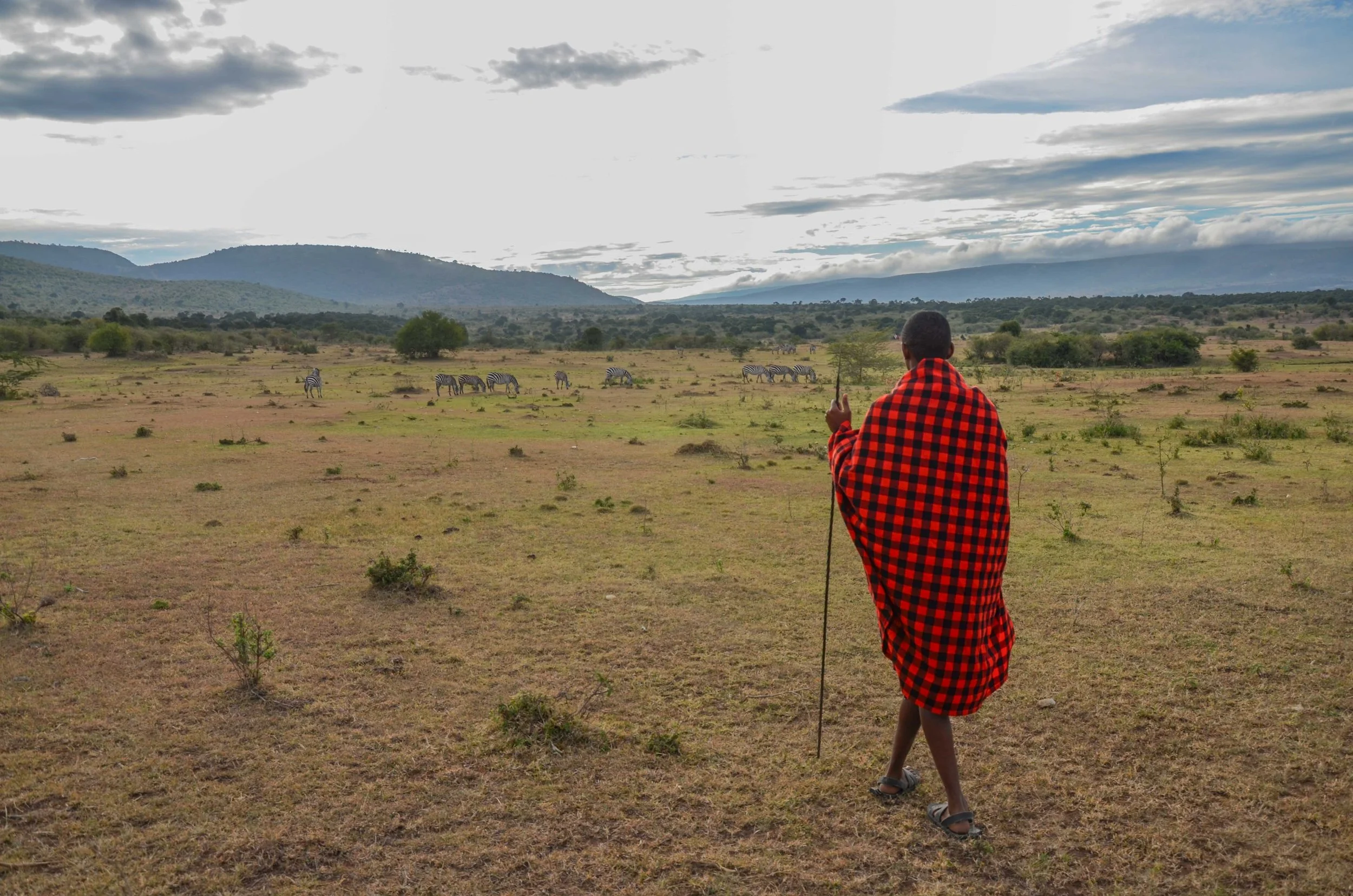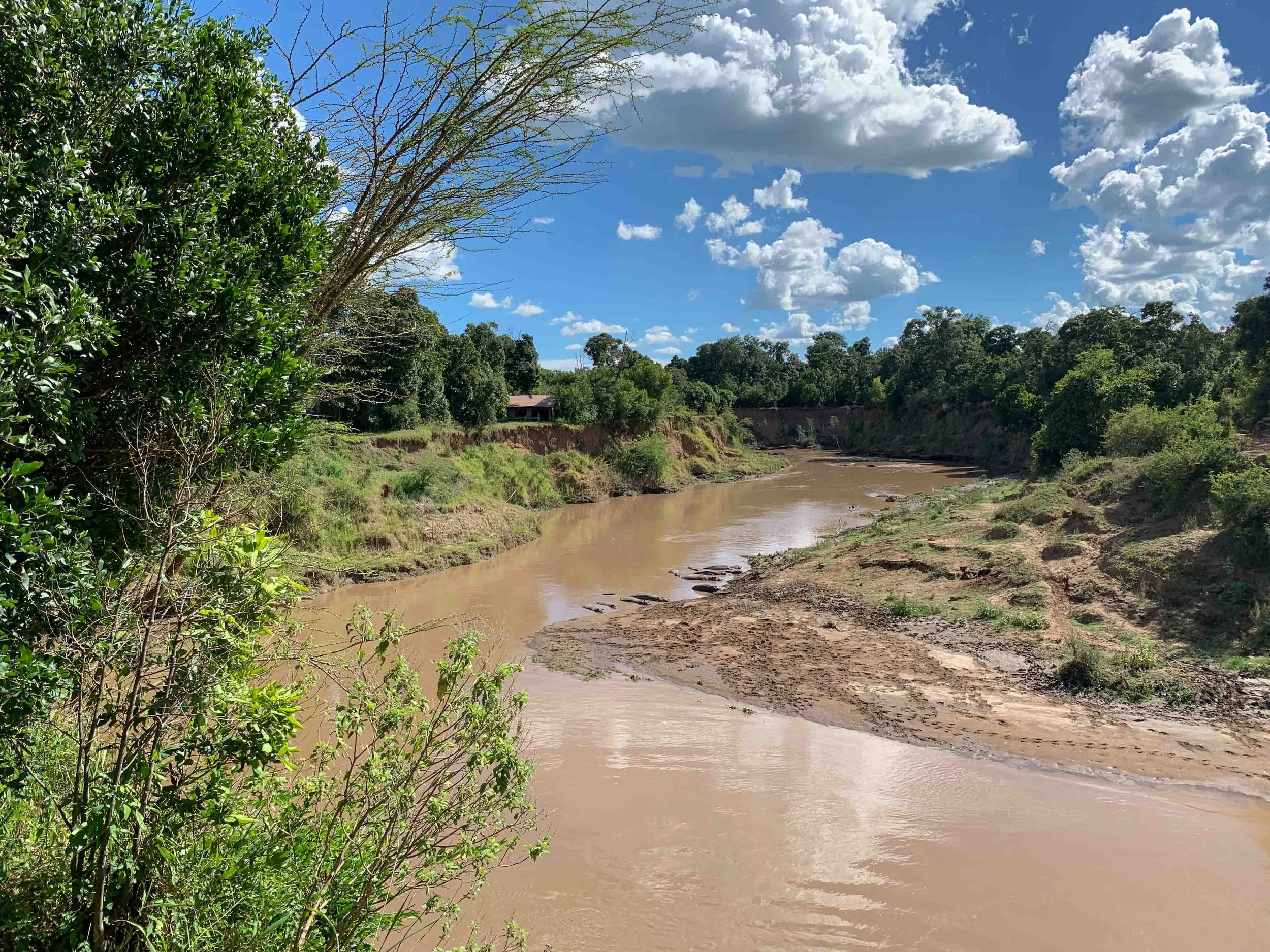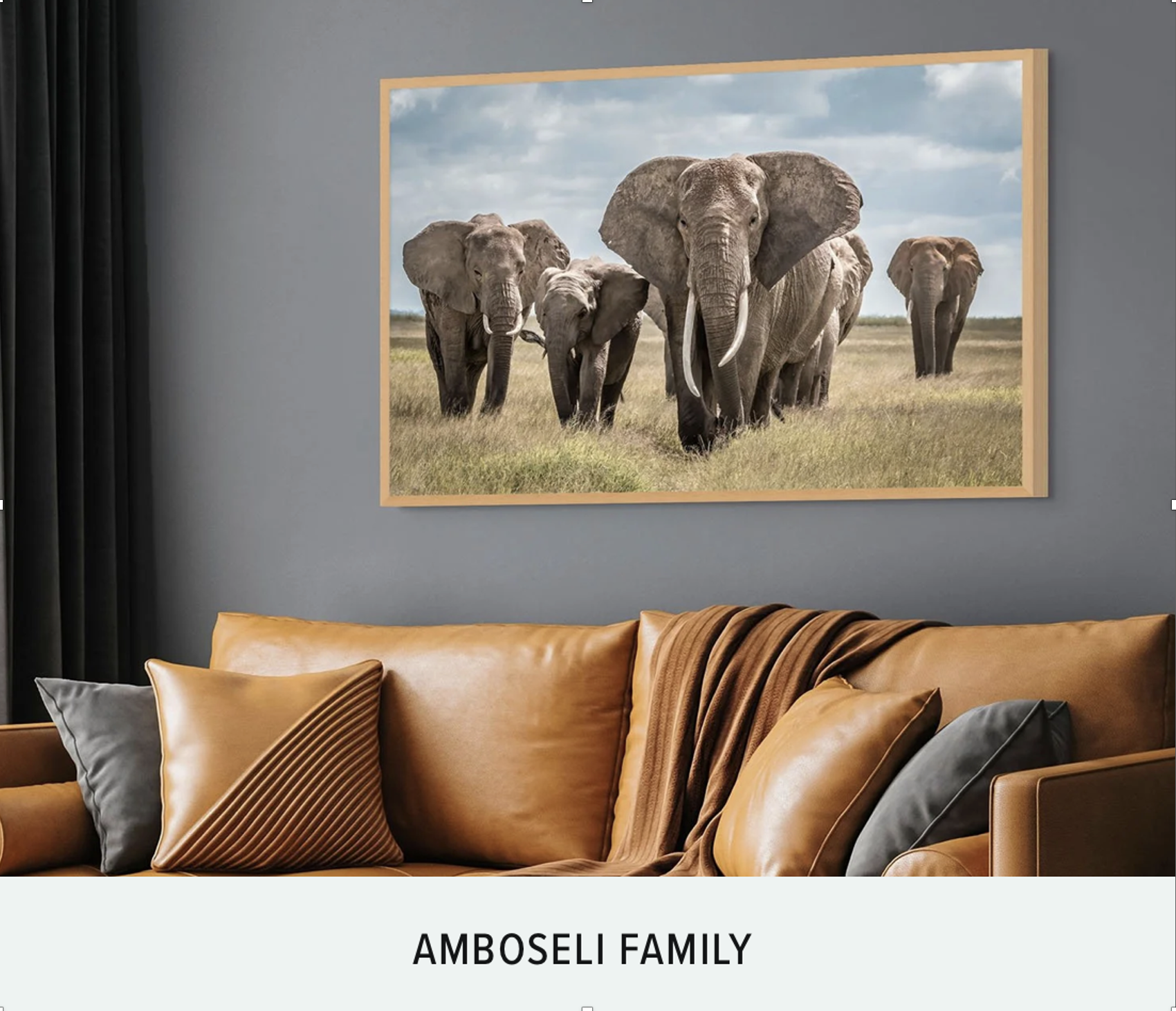Predator or Prey and Print Sale!
When is a safari guest considered a safari snack?
©kathykarn
I received so many positive responses to The Sound of Safari last week that I’ve decided to add a short video clip at the end of each weekly blog. As I waxed on about drifting off to sleep listening to the roar of a lion reader Susan Barnat asked, “I could not help but wonder: do the lions (and other animals) not view people in a tent as potential prey?” This is fair question, after all lions are meat eaters and none of us could outrun a lion if we were in their sights.
Maasai friend and guide Joseph Mutemi, enjoys a respectful moment with a lion. ©kathykarn
The reality, however, is lions, like most wildlife, are wary of humans. There’s good reason for this since humans are responsible for the catastrophic decline of 76% in African wildlife populations in the past 50 years. Africa’s lion population is estimated to have fallen by from around 90,000–100,000 animals in 1970 to fewer than 25,000 today primarily due to hunting, poaching, habitat encroachment, human wildlife conflict and climate change.
Nighttime in the African bush is DARK
When we’re out on a game drive during the day animals see the vehicle as a large, potentially predator shape, not a pot full of tender morsels. It’s different when we are in camp at night. Lions are night hunters and most of the camps I stay in are not fenced. Strolling alone from the dining area back to your tent puts a guest at risk for falling into the prey category. 😬
Camp rules are clear: NEVER walk alone at night. ALWAYS have a Maasai security guard “askari” accompany you to your tent. DO NOT LEAVE YOUR TENT in the dark without an askari. Once you are in your tent with doors and windows zipped up you are safe. Tents have indoor plumbing, if not, have a pot handy because slipping outside for a quick pee is not an option.
The Maasai have walked the land with wildlife for centuries. @kathykarn
The askari do not carry guns, they usually carry their traditional weapons of a spear, a conga (throwing club) and machete. But more importantly they know the wildlife and the terrain. I swear some can see in the dark as well as the animals. Last January our askari greeted us in the predawn blackness with the news he was thrilled to report he’d seen a leopard on the path as he came to pick us up. I love seeing leopards but I’m not sure “thrill” would have been my first response in the dark ….
The resident leopard near our camp @kathykarn
When I settle into bed I feel safe even though there’s only canvas between me and the wilderness outside. I have many wonderful memories of night sounds. One night I was wakened by scratching along the wall at the head of my bed. I grabbed a flashlight and discovered a porcupine taking a shortcut along the narrow trench beside the tent wall. Last January a hippo woke us with a noisy splash in the neighbouring pond in the wee hours of the morning. My favourite moment was waking to see a family of elephants, silver grey in the moonlight, drinking from the plunge pool at the edge of my deck. Seeing wildlife in the day is wonderful. Hearing them at night adds another layer of mystery to the experience.
This week’s video was recorded from my bed in Sentinel Camp as I listened to hippos in the Mara River below my tent. Turn up the volume for all the accompanying night sounds and witness the pitch blackness of an African night. Listen here (25 sec).
Happy Thanksgiving to my American readers. Holiday Print Sale is on until Dec. 15th! Visit my online Gallery. Save 15% by entering the discount code SAVE15 at checkout. Shop now and save while also helping wildlife. 10% of all sales supports wildlife conservation in Kenya
Please hit ❤️ button below, share your comments here and share this story with friends who would love it. Your presence and engagement makes a difference. Thank you for being a subscriber. A percentage of all sales and Substack subscriptions supports wildlife and conservation in Kenya.

